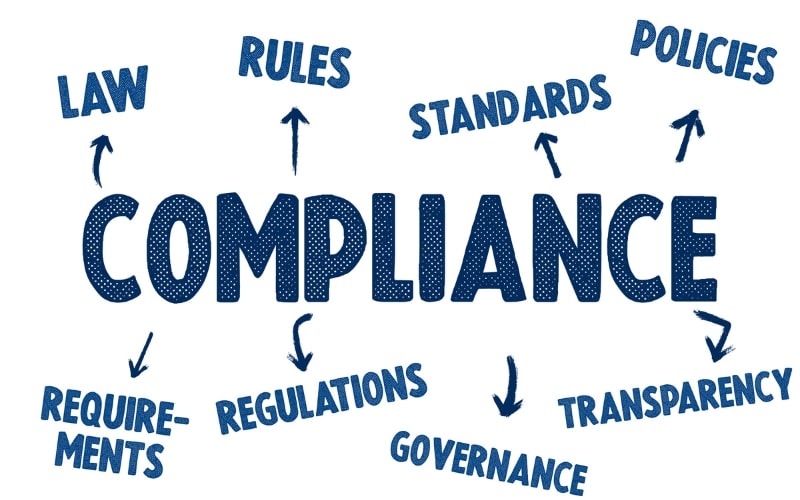The key responsibilities of a medical sales representative encompass a wide range of duties that are crucial for the success of both their products and the healthcare professionals they serve. From building and maintaining relationships with healthcare professionals to promoting and selling medical products, these representatives act as vital links between the medical community and their companies.
Their duties also include providing comprehensive product education and training, conducting market research and analysis, and ensuring strict regulatory compliance and reporting. Each of these responsibilities requires a deep understanding of the medical field, exceptional communication skills, and a commitment to ethical practices. This article explores these key responsibilities of a medical sales representative in detail, highlighting the essential tasks and strategies that medical sales representatives employ to excel in their roles.
Building and Maintaining Relationships with Healthcare Professionals

Building and maintaining relationships with healthcare professionals is a cornerstone responsibility for medical sales representatives. This crucial aspect of their role not only drives sales but also ensures the long-term success of both the representative and the company they represent. Here’s a detailed look at how this responsibility unfolds and why it is so essential.
Understanding the Importance
The medical field is inherently trust-based. Healthcare professionals rely on the efficacy and safety of the products they use to treat patients. Therefore, establishing a trustworthy and reliable presence in the industry is vital. Medical sales representatives serve as the bridge between the medical community and their company, making their relationship-building skills indispensable.
Strategies for Building Relationships
Initial Engagement: The first step in building relationships is making initial contact with healthcare professionals. This involves identifying key decision-makers within hospitals, clinics, and private practices. A medical sales representative needs to be well-prepared for these initial meetings, armed with comprehensive product knowledge and an understanding of the specific needs and challenges faced by these professionals.
Personalization: Tailoring interactions to address the specific needs of each healthcare professional is crucial. Personalized communication demonstrates that the medical sales representative values the professional’s time and is genuinely interested in providing solutions that enhance their practice. This might involve customizing presentations, providing relevant case studies, or highlighting particular product features that align with the professional’s specialty.
Consistency and Reliability: Building trust requires consistent and reliable communication. A medical sales representative must follow through on promises and ensure that they are always available to provide support and answer questions. Regular check-ins, whether through in-person visits, phone calls, or emails, help maintain the relationship and keep the professional informed about new products or updates. Key responsibilities like these are essential for maintaining strong, long-term relationships in the medical field.
Nurturing Long-Term Partnerships
Educational Support: Providing ongoing education and training is a key strategy for nurturing long-term partnerships. Healthcare professionals must stay abreast of the latest advancements and changes in medical technology. By organizing training sessions, workshops, and seminars, representatives can position themselves as valuable resources. These educational efforts should be tailored to meet the specific needs and interests of the healthcare professionals.
Responsive Problem-Solving: Addressing issues and concerns promptly is another critical component of maintaining strong relationships. When healthcare professionals encounter problems with a product, they need quick and effective solutions. Representatives who are proactive in resolving these issues demonstrate their commitment to customer satisfaction and product efficacy.
Feedback Loop: Establishing a feedback loop where healthcare professionals can share their experiences and suggestions helps in refining products and services. This not only improves the product but also shows that the company values the input of its users. Regularly seeking and acting on feedback strengthens the relationship and fosters a sense of collaboration.
Benefits of Strong Relationships
Increased Loyalty: Healthcare professionals are more likely to remain loyal to a company and its products when they have strong, positive relationships with their medical sales representative. This loyalty can translate into consistent sales and referrals.
Insightful Market Intelligence: Medical sales representatives who maintain good relationships often gain valuable insights into market trends and the needs of healthcare professionals. This information can inform product development and marketing strategies, giving the company a competitive edge.
Enhanced Reputation: Companies represented by knowledgeable and reliable medical sales representatives often enjoy a better reputation in the medical community. This reputation can open doors to new opportunities and partnerships.
In conclusion, building and maintaining relationships with healthcare professionals is one of the key responsibilities of a medical sales representative. It requires a combination of product knowledge, personalized communication, consistent follow-up, educational support, and responsive problem-solving. The benefits of investing in these relationships are far-reaching, contributing to increased loyalty, valuable market insights, and an enhanced reputation in the medical field.
Promoting and Selling Medical Products

Promoting and selling medical products is the core responsibility of a medical sales representative. This role requires a blend of in-depth product knowledge, effective sales techniques, and a strategic approach to meeting and exceeding sales targets. Here’s a comprehensive look at what this entails and how it contributes to the success of the representative and the company.
In-Depth Product Knowledge
A medical sales representative must have an extensive understanding of the products they are promoting. This goes beyond knowing the basic features and benefits; it involves comprehending the science behind the product, its mechanism of action, and its clinical applications, which are among the key responsibilities of the role.
Understanding the Product: Representatives should be able to explain how the product works, its advantages over competitors, and any potential side effects or contraindications. This knowledge is crucial for fulfilling their key responsibilities and allows them to confidently address any questions or concerns from healthcare professionals.
Staying Updated: The medical field is constantly evolving, with new research and innovations emerging regularly. A medical sales representative must stay informed about the latest developments related to their products. This can involve attending industry conferences, participating in training sessions, and regularly reviewing scientific literature.
Effective Sales Techniques
Selling medical products requires a nuanced approach, as it involves convincing highly knowledgeable and often skeptical healthcare professionals. Effective sales techniques are essential in this process.
Identifying Needs: The first step in the sales process is understanding the specific needs and challenges faced by healthcare professionals. This involves active listening and asking the right questions to uncover pain points and areas where the product can provide a solution.
Tailored Presentations: Once the needs are identified, representatives must tailor their presentations to highlight how their product addresses those needs. This customization demonstrates that the representative is not just selling a product but offering a solution tailored to the professional’s specific requirements.
Building Trust: Trust is a critical component in the sales process. Representatives build trust by providing accurate information, being transparent about the product’s limitations, and consistently following through on promises. Building trust can involve providing clinical data, sharing case studies, and arranging for product trials.
Meeting Sales Targets
Utilizing Marketing Support
Medical sales representatives often work closely with their company’s marketing team to leverage marketing materials and campaigns that support their sales efforts.
Educational Materials: Marketing teams provide educational materials such as brochures, white papers, and product demos that representatives can use to educate healthcare professionals about their products.
Promotional Campaigns: Coordinated promotional campaigns, including webinars, seminars, and digital marketing efforts, can create awareness and generate interest in the products. Representatives can use these campaigns to schedule follow-up meetings and product demonstrations.
Feedback Loop: Providing feedback to the marketing team about what materials and campaigns are effective helps in refining future marketing strategies. Representatives play a key role in this feedback loop, ensuring that marketing efforts are aligned with the needs of healthcare professionals.
Providing Product Education and Training

Providing product education and training is a crucial responsibility for medical sales representatives. This aspect of the job ensures that healthcare professionals are well-informed about the products they use, which is essential for the safe and effective treatment of patients. Here’s a detailed exploration of the key elements involved in this responsibility.
Educational Sessions
Educational sessions are one of the key responsibilities of a medical sales representative, as they provide essential training to healthcare professionals. These sessions can take various forms, including in-person workshops, webinars, and seminars. The goal is to deliver comprehensive information about the product’s usage, benefits, and any potential risks.
Organizing Sessions: Planning and organizing educational sessions require coordination with healthcare facilities and understanding their schedules and needs. Medical sales representatives must ensure that the content is relevant and engaging, tailored to the audience’s level of expertise and their specific interests.
Delivering Content: During these sessions, medical sales representatives must be clear and concise in their presentations. They should use visual aids such as slides, videos, and product demonstrations to enhance understanding. Interactive elements, such as Q&A sessions, can help clarify doubts and engage the audience.
Follow-Up: After the sessions, providing follow-up materials such as handouts, manuals, and online resources can reinforce the information shared. Medical sales representatives should also be available for any additional questions or support that healthcare professionals might need.
Hands-On Product Demonstrations
Hands-on product demonstrations are particularly effective in medical sales. These demonstrations allow healthcare professionals to see the product in action and understand its application in real-world scenarios.
Practical Experience: Providing opportunities for healthcare professionals to handle and use the product under guidance can significantly enhance their understanding and confidence. This practical experience is invaluable, particularly for complex medical devices and technologies.
Simulated Environments: Creating simulated environments where the product can be used in a controlled setting helps healthcare professionals get a feel for its functionality and performance. These simulations can replicate common scenarios they might encounter in their practice.
Immediate Feedback: During these demonstrations, representatives can gather immediate feedback and address any concerns or misconceptions. This interaction helps build trust and ensures that healthcare professionals are fully comfortable with the product.
Continuous Education and Support
Continuous education and support are key responsibilities of a medical sales representative to ensure that healthcare professionals remain knowledgeable about the products they use. This ongoing process helps them stay updated with any changes or improvements.
Regular Updates: Keeping healthcare professionals informed about new features, updates, and improvements to the product is crucial. This is one of the key responsibilities of a medical sales representative and can be achieved through newsletters, email updates, and periodic training sessions.
Advanced Training: Offering advanced training sessions for experienced users helps them deepen their knowledge and explore advanced features and techniques. This not only enhances their proficiency but also fulfills one of the key responsibilities of a medical sales representative by ensuring users can make the most of the product.
Support Channels: Providing accessible support channels such as helplines, online chat, and dedicated account managers ensures that healthcare professionals can get help whenever they need it. Prompt and effective support is another key responsibility of a medical sales representative, helping to prevent issues from escalating and maintaining user satisfaction.
Customized Training Programs
Customized training programs tailored to the specific needs of different healthcare facilities and professionals can significantly enhance the effectiveness of product education.
Assessing Needs: Representatives must assess the specific needs and challenges faced by different healthcare professionals and facilities. This understanding allows them to design training programs that address those unique requirements.
Personalized Content: Developing personalized training content that is relevant to the specific audience ensures higher engagement and better retention of information. This content can include case studies, practical examples, and scenarios relevant to their daily practice.
Flexibility in Delivery: Offering flexibility in how the training is delivered—whether through in-person sessions, online modules, or hybrid formats—ensures that it fits into the busy schedules of healthcare professionals.
Building Long-Term Relationships
Providing product education and training is not just about imparting knowledge; it’s also about building long-term relationships with healthcare professionals. These relationships are based on trust, support, and a commitment to their success.
Ongoing Engagement: Maintaining regular contact and engagement with healthcare professionals through follow-ups and check-ins helps strengthen these relationships. It shows that representatives are invested in their continued success.
Feedback and Improvement: Actively seeking feedback on the training programs and using it to make continuous improvements demonstrates a commitment to excellence. This approach ensures that the training remains relevant and effective.
Market Research and Analysis

Market research and analysis are essential responsibilities for medical sales representatives. This aspect of their role helps in understanding market dynamics, identifying opportunities, and developing effective sales strategies. Here’s a detailed exploration of the key elements involved in this responsibility.
Understanding the Market
A deep understanding of the market is crucial for medical sales representatives. This involves knowing the current trends, demands, and needs within the healthcare industry.
Market Trends: Representatives need to stay informed about the latest trends in medical technology and healthcare practices. This can include advancements in medical devices, changes in healthcare regulations, and emerging treatment protocols. By keeping up with these trends, representatives can better anticipate the needs of healthcare professionals and position their products accordingly.
Customer Needs: Understanding the specific needs of different customer segments, such as hospitals, clinics, and private practices, is vital. This involves recognizing the unique challenges each segment faces and how the products can address these challenges. By tailoring their approach to meet these needs, representatives can enhance their sales effectiveness.
Geographic Differences: Market dynamics can vary significantly by region. Representatives must be aware of geographic differences in healthcare practices, regulations, and patient demographics. This knowledge allows them to adapt their sales strategies to suit local conditions and preferences.
Competitive Analysis
Competitive analysis is a critical component of market research. Medical sales representatives must keep a close eye on their competitors to understand their strengths, weaknesses, and market positioning.
Competitor Products: Analyzing competitor products involves understanding their features, benefits, and limitations. Representatives should be able to compare their products with those of competitors and highlight their unique selling points. This comparison helps in positioning their products more effectively in the market.
Sales Strategies: Understanding the sales strategies of competitors can provide valuable insights. This includes their pricing models, promotional tactics, and customer engagement approaches. By learning from competitors, representatives can refine their own strategies to gain a competitive edge.
Market Share: Knowing the market share of competitors helps in identifying potential opportunities and threats. Representatives can use this information to focus on areas where their products can capture more market share or defend their existing positions.
Feedback Collection
Collecting feedback from healthcare professionals is an integral part of market research. This feedback provides valuable insights into product performance and areas for improvement.
Customer Feedback: Engaging with healthcare professionals to gather their feedback on the products helps in understanding their experiences, challenges, and satisfaction levels. Representatives should regularly solicit feedback through surveys, interviews, and informal conversations.
Product Performance: Monitoring the performance of the products in real-world settings is crucial. This involves tracking usage patterns, clinical outcomes, and any reported issues. By understanding how the products are performing, representatives can identify areas for enhancement and provide valuable input to their company’s product development team.
Improvement Suggestions: Healthcare professionals often have valuable suggestions for product improvements. Representatives should actively seek and document these suggestions, as they can lead to product enhancements that better meet the needs of the market.
Utilizing Data and Insights
Effectively utilizing the data and insights gained from market research and analysis is key to developing successful sales strategies.
Data-Driven Decisions: Representatives should use the collected data to make informed decisions about their sales strategies. This includes identifying high-potential customer segments, prioritizing sales activities, and tailoring messaging to resonate with the target audience.
Strategic Planning: Developing strategic sales plans based on market research helps in setting clear objectives and goals. Representatives should create detailed plans that outline their approach for reaching their targets, including specific actions, timelines, and metrics for success.
Performance Monitoring: Continuously monitoring the performance of the sales strategies allows representatives to make necessary adjustments. Regularly reviewing sales data, market trends, and feedback helps in staying agile and responsive to market changes.
Regulatory Compliance and Reporting

Regulatory compliance and reporting are critical responsibilities for medical sales representatives. These duties ensure that all sales activities and product usage adhere to the strict guidelines set by regulatory bodies, maintaining the highest standards of safety and efficacy in the healthcare industry. Here’s an in-depth look at what this entails.
Adhering to Regulations
Medical sales representatives must navigate a complex landscape of regulations that govern the marketing and sale of medical products. These regulations are put in place by various governmental and industry bodies to ensure the safety and well-being of patients.
Understanding Regulations: Representatives need to have a thorough understanding of the relevant regulations, such as those set by the FDA (Food and Drug Administration) in the United States, the EMA (European Medicines Agency) in Europe, or other local regulatory bodies. This knowledge is crucial to ensure that their activities comply with all legal requirements.
Training and Education: Ongoing training and education about regulatory changes and updates are essential. Companies often provide regular training sessions to keep their representatives informed about new regulations and best practices in compliance. Staying updated helps representatives avoid potential legal issues and ensures they can provide accurate information to healthcare professionals.
Compliance in Communication: All promotional materials, communications, and presentations must be compliant with regulatory standards. This includes ensuring that all claims about the product’s efficacy and safety are supported by scientific evidence and that any potential side effects are clearly communicated. Representatives must be careful to avoid making unsupported claims or engaging in off-label promotion.
Documentation
Maintaining accurate and detailed documentation is a fundamental aspect of regulatory compliance. This documentation serves as a record of all interactions and transactions, providing a trail that can be audited if necessary.
Sales Records: Representatives must keep detailed records of all sales activities, including meetings with healthcare professionals, product demonstrations, and educational sessions. These records should include dates, times, participants, and the topics discussed.
Product Information: Documentation related to product information, such as brochures, manuals, and training materials, must be maintained and updated regularly. This ensures that all distributed materials are current and compliant with the latest regulatory guidelines.
Reporting Adverse Events: If healthcare professionals report any adverse events or side effects associated with a product, representatives must document these reports meticulously and ensure they are communicated promptly to the appropriate regulatory bodies and their company’s pharmacovigilance team. This helps in monitoring the product’s safety profile and taking necessary corrective actions.
Reporting
Regular reporting to regulatory bodies and internal stakeholders is a key responsibility. These reports ensure transparency and accountability in all sales activities.
Internal Reporting: Representatives need to provide regular reports to their managers and compliance departments. These reports typically include sales performance metrics, feedback from healthcare professionals, and any compliance-related issues encountered. Internal reporting helps companies monitor their compliance status and make informed decisions about their sales strategies.
Regulatory Reporting: Depending on the jurisdiction, there may be requirements for periodic reporting to regulatory bodies. This can include reports on sales figures, distribution channels, and any adverse events. Accurate and timely reporting helps regulatory bodies monitor the market and ensure that all products meet the required safety and efficacy standards.
Audit Preparedness: Representatives must be prepared for audits by regulatory bodies. This means keeping all documentation organized and easily accessible. During an audit, representatives might need to provide detailed records and answer questions about their compliance practices. Being well-prepared for audits demonstrates the company’s commitment to regulatory compliance and can prevent potential penalties.
Ensuring Ethical Practices
Ethical conduct is integral to regulatory compliance. Representatives must uphold the highest standards of integrity in all their interactions and transactions.
Transparency: Representatives should maintain transparency in all dealings with healthcare professionals. This includes being honest about the product’s capabilities and limitations and avoiding any misleading information.
Conflict of Interest: Avoiding conflicts of interest is essential. Representatives must not engage in practices that could be seen as unduly influencing healthcare professionals, such as offering inappropriate incentives or gifts.
Professionalism: Upholding professionalism in all interactions ensures that representatives maintain the trust and respect of healthcare professionals and regulatory bodies. This professional conduct reinforces the credibility of both the representative and their company.
Conclusion – Key responsibilities of a medical sales representative
In conclusion, the multifaceted responsibilities of medical sales representatives are pivotal to the effective functioning of the healthcare system. By building and nurturing strong relationships with healthcare professionals, they foster trust and ensure the proper use of medical products. Their efforts in promoting and selling products not only drive sales but also enhance patient care through the dissemination of advanced medical technologies. Providing thorough product education and continuous support empowers healthcare professionals with the knowledge and confidence to use these products effectively.
Moreover, diligent market research and analysis enable representatives to stay ahead of trends and competition, ensuring that their strategies are always aligned with market needs. Lastly, adherence to regulatory compliance and meticulous reporting uphold the highest standards of safety and efficacy in the industry. Through these comprehensive efforts, medical sales representatives contribute significantly to the advancement of healthcare and the success of their organizations. Get ready to ace your next interview—discover essential tips for preparing for a medical device sales interview in our expert guide!


